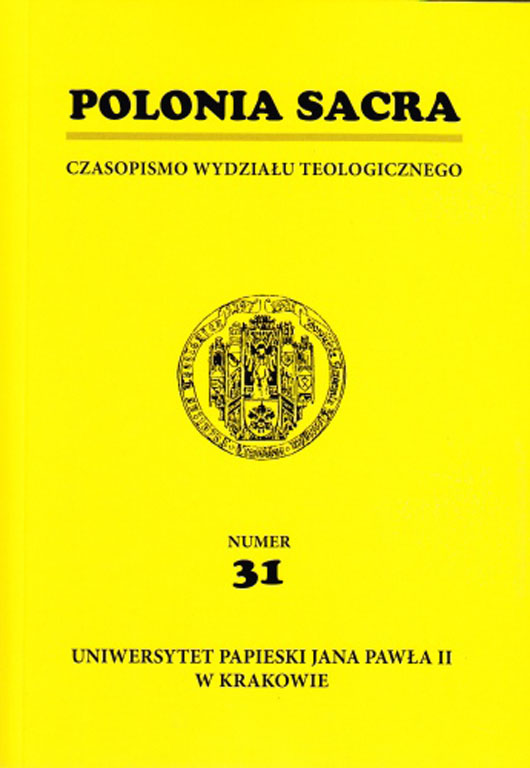Problematyka polityczna w kazaniu
DOI:
https://doi.org/10.15633/ps.512Abstrakt
The article deals with political issues in preaching, especially when delivered independently of the liturgical context, as for instance, during the retreats or religious meetings with popular devotion.
Liturgical preaching is mistagogical and its subject depends very much on liturgical readings. That is why the preacher is somehow limited in choosing a subject for homilies. In circumstances other than the liturgy, the preacher has much more freedom in choosing a subject. The question, then, is to what extent the preacher might engage with political issues. This depends on an understanding and definition of both preaching and politics. It is necessary then to be precise not only with the definition of the sermon, but also the definition of politics. The history of preaching is filled with sermons dealing with political issues. Some of them are presented in the article. Then a different kind of so-called “political sermons” are mentioned. Later in the article the author presents the initial conditions required for the preparation and delivery of political problems in preaching. The final part of the article points out the political context of preaching. The article finishes with some conclusions.
Pobrania
Opublikowane
Numer
Dział
Licencja
Prawa autorskie (c) 2012 Henryk Sławiński

Utwór dostępny jest na licencji Creative Commons Uznanie autorstwa 4.0 Międzynarodowe.
Autorzy publikujący w czasopiśmie udzielają jego wydawcy zgody o następującej treści:
- Autor zachowuje autorskie prawa majątkowe do utworu, a jednocześnie udziela wydawcy czasopisma zgody na jego pierwszą publikację w wersji drukowanej i wersji online na licencji Creative Commons Uznanie autorstwa 4.0 Międzynarodowe oraz zgody na wykonywanie opracowań, w tym przekładów.
- Autor ma możliwość udzielania zgody niewyłącznej na opublikowanie utworu w wersji, która ukazała się w czasopiśmie (np. zamieszczenia go w repozytorium instytucjonalnym lub opublikowania w książce), wraz z informacją o jego pierwszej publikacji w czasopiśmie.
- Autor może umieścić swój utwór online (np. w repozytorium instytucjonalnym lub na swojej stronie internetowej) jeszcze przed zgłoszeniem utworu do czasopisma.

